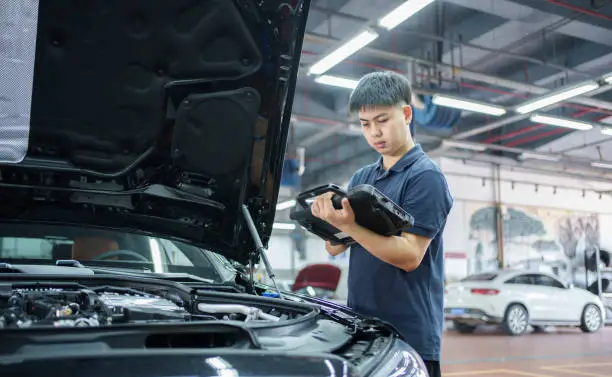Whether you’re a seasoned DIY mechanic or just trying to save a few bucks on repairs, nothing is more frustrating than ordering a car part—only to find out it doesn’t fit your vehicle. With so many makes, models, trim levels, and year-to-year variations, buying the correct part can feel like a guessing game. That’s where a VIN number lookup becomes your best tool. It removes the uncertainty and ensures you’re getting the right component the first time.
How to Decode a VIN Number
The Vehicle Identification Number (VIN) is like your car’s fingerprint—unique, detailed, and incredibly useful. Located on the dashboard near the windshield, on the driver’s side door frame, or within registration documents, this 17-character code reveals everything from the make and model to the engine size and manufacturing plant.
Using a vin number lookup helps decode this string of letters and numbers to provide precise vehicle data. Each character or section of the VIN provides specific information:
- The first three characters identify the manufacturer.
- Characters 4-8 indicate vehicle features such as body style, engine type, and restraint systems.
- The 9th character is a security code.
- The 10th identifies the model year.
- The 11th shows the assembly plant.
- Characters 12-17 make up the unique serial number.
This might sound overly technical, but a simple lookup tool does all the hard work for you—instantly pulling up your vehicle’s specs so you can match the right parts. For example, let’s say your SUV has multiple trim levels, each requiring a slightly different fan clutch. By entering your VIN, the system filters out incompatible parts and shows you only what fits your specific vehicle.
VIN lookups are especially important when ordering parts online or shopping at large auto parts stores. Many parts—brake rotors, timing belts, sensors, and air filters—vary between trims, engine sizes, and even factory upgrades. Instead of guessing and risking a return or a failed repair, the VIN ensures compatibility.
Why VIN Lookups Are Critical When Buying Used Cars
If you’re in the market for a used car, the VIN can reveal far more than just parts compatibility. It can also expose the vehicle’s true history, giving you peace of mind before making a purchase. When used with online vehicle history tools, the VIN can show accident reports, previous ownership, mileage inconsistencies, title issues, and recall information.
For example, a car that appears in good condition on the surface might have been in a major collision. If a seller replaced parts without proper documentation, the wrong components may have been installed. A thorough VIN lookup can alert you to such discrepancies, helping you avoid future problems with mismatched parts or hidden damage.
Additionally, vehicles with emission recalls or defective components will often flag those issues in a VIN-based search. This is especially important in states with strict emissions testing, where unresolved recalls can cause your vehicle to fail inspection. If you’re checking the vehicle before a purchase, it’s a simple but powerful way to protect your investment.
Another overlooked benefit of VIN lookups is that they help you verify the factory-installed equipment. If you’re replacing a seemingly simple part like a gas cap, you’d be surprised how many variations exist—even within the same make and model year. Some gas caps include built-in sensors, locking mechanisms, or compatibility with emission systems. A VIN search tells you exactly which one you need.
For DIY mechanics, this level of accuracy can make a huge difference. It cuts down on returns, saves money on expedited shipping, and eliminates the frustration of discovering you bought the wrong part only after tearing your vehicle apart.
In short, using a VIN number lookup before buying car parts—or before buying the car itself—is a small step that can prevent big headaches. It ensures you’re getting the right part, protects you from costly mistakes, and adds another layer of confidence to your vehicle ownership or purchasing journey.

